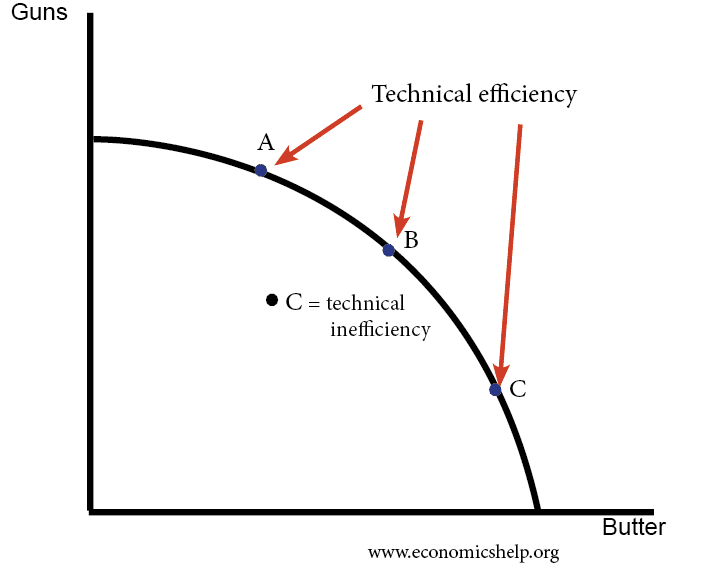Technical efficiency is the effectiveness with which a given set of inputs is used to produce an output. A firm is said to be technically efficient if a firm is producing the maximum output from the minimum quantity of inputs, such as labour, capital, and technology.
Technical efficiency requires no unemployment of resources.

Technical efficiency rate
Example: Suppose a firm produces 300 cars a week from its current workforce and quantity of robots. If the maximum potential output was 320.
The technical efficiency rate of the firm would be (300/320) = 93.75%
In this case, some workers and factor inputs are underemployed, and there is a degree of potential output missed.
Related concepts
Productive efficiency. The concept of technical efficiency is related to productive efficiency. Productive efficiency is concerned with producing at the lowest point on the short run average cost curve. Productive efficiency requires technical efficiency.
X-inefficiency. The concept of technical efficiency is also related to X-inefficiency. X-inefficiency is said to occur when a firm fails to be technically efficient because of an absence of competitive pressures. e.g. a monopoly employs inefficient working practices because it has no incentive to cut costs.
Allocative efficiency. Technical efficiency is necessary for allocative efficiency to be achieved. However, allocative efficiency also requires the optimal allocation of resources. Technical efficiency is important but not essential.
Related

